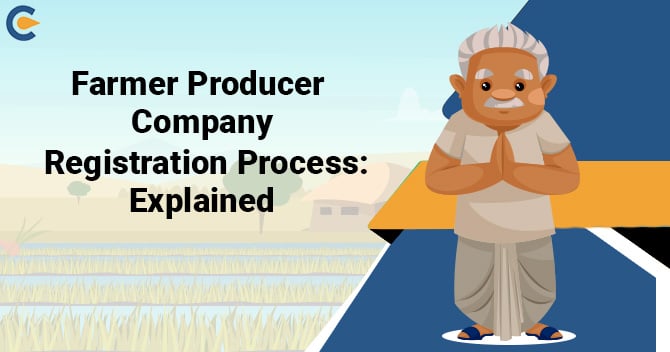Due to the fragmentation of land holdings and a lack of post-harvest processing facilities, most Indian farmers struggle to obtain the best price for their produce. With landholdings of less than 2 hectares, most farmers, which constitute — 85% of the country’s 12.5 crore farmer households—are small and marginal farmers. Farmland fragmentation causes disorder, making it impractical for Indian farmers to employ cutting-edge technology. In this blog, we will discuss NABARD Schemes.
The foundation of the Indian economy is the agricultural sector. They provide over 60% of India’s workers and grow the country’s food, however, the farmer-producer businesses do not reap the rewards of their labour. These businesses are unable to locate reliable sources of funding.
Therefore, the NABARD Schemes helps farmers by providing financial support to a farmer-producer company engaged in the agriculture industry.
These schemes help the farmers to take advantage of the economies of scale to buy inputs at a cheaper rate, adopt new technologies, gain access to financing, establish connections with the market, create post-harvest processing facilities, and increase their selling power. In order to empower farmers to form groups or clusters, the Producer Organization Development Fund and the producer company concept were developed, which is explained in detail below.
Promotion of Farmer Producer Organisations – NABARD Schemes
Primary producers, such as farmers, milk producers, fishers, weavers, rural artisans, craftspeople, etc., created the Farmer Producer Organization (PO), a hybrid of a cooperative society and private limited enterprises. In order to increase producers’ net income, one of the most efficient ways to connect small farmers with the agricultural value chain has been through producer organisations.
Due to the introduction of the idea of a Producer Company, Farmers cooperatives can now operate as a corporate entity under the Ministry of Corporate Affairs. A producer company is a legally established business with one or more of the following objectives:
exporting the principal products of the Members, importing commodities or services for their benefit, production, harvesting, procurement, grading, pooling, handling, marketing, and selling.
What is the eligibility of a Producer Organisation?
A company will be referred to as a producer organisation or producer company if it meets the following criteria:
- It must be a legal entity and a registered body;
- Producers are shareholders in the organisation;
- It deals with business activities related to the primary produce/product;
- It should work to the benefit the member producers;
- Parts of the profit are shared among the producers and the balance goes to the share capital or reserves.
- It deals with business activities related to the primary produce/product.
What are the Schemes for Farmer Producer Companies? – NABARD Schemes
NABARD Schemes offers the following programmes to FPOs as financial and development support:
i. Producers Organisation Development Fund (PODF)
In order to promote producer groups and take a flexible approach to meeting the requirements of producers, NABARD[1] established the Producer Organization Development Fund (PODF) in 2011 for Rs. 50 crores. As per PODF any registered Producer Organization (PO), Producer Company, Producers Cooperatives, Registered Farmer Federations, MACS (Mutually aided Cooperative Society), Industrial Cooperative Societies, and other registered federations established by producers are given financial support under this scheme in the form of grants and/or loans.
In order to support these organisations on three levers—
- credit facilitation,
- capacity training, and
- market linkage support—
NABARD established this fund in recognition of the power of POs.
Assistance is additionally granted for company incubation services, talent development, the recording of successful models, Information and Communication Technology (ICT) application in business management, etc.
As the corpus has been increased through the appropriation of interest differential out of RIDF, NABARD has also launched a new programme for the promotion and benefit of 3,000 FPOs called Producers’ Organization Development Fund – Interest Differential (PODF-ID).
ii. Producers Organization Development and Upliftment Corpus (PRODUCE) Fund
The Government of India established the PRODUCE Fund in NABARD in 2014 –15 with a budget of Rs 200 crores in order to establish 2,000 Farmer Producer Organizations (FPOs) around the nation. The PRODUCE Fund’s mission is to support new FPOs and help them with their early financial needs in order to establish them as creditworthy, financially viable, and long-term farming businesses.
iii. Central Sector Scheme for Promotion and Nurturing of Farmers Producers Organisations (FPOs)
NABARD is one of the Implementing Agencies for the Central Sector Scheme on Formation and Promotion of 10,000 FPO, which was launched by the GoI. The program’s goal is to promote new FPOs and assist them with their initial financial needs so they can become creditworthy, economically lively, and a viable source of income for farmers. BIRD, Lucknow will serve as the program’s Nodal Training Institute. Under NABSANRAKSHAN, a division of NABARD, a Credit Guarantee Fund of Rs 1,000 crore with equal contributions from GoI and NABARD has been established.
Procedure to Obtain the Grant/Loan
Application
- The qualified organisations must submit a concept note describing the entity details and the proposal.
- Regional Offices will receive the Concept note.
Appraisal
- RO/HO shall carry out due diligence of the entity to analyse the technical, economic, and financial details
- On completion of due diligence, working capital and term loan assessment shall be done along with risk assessment
- After approval, the organisations must submit a Detailed Project report
- RO shall scrutinise it, and a joint field visit will be undertaken if the proposal is found to be suitable
Sanction and Disbursement
- Following receipt of the reports, the RO shall draught a sanction memorandum and send it to the HO.
- Following HO approval, the cash will be disbursed in accordance with their policies.
Monitoring the end use of funds
- Throughout the loan’s term, NABARD will closely watch the entity’s operations. Additionally, the entities must provide NABARD, RO, and HO with half-yearly progress reports in the format required.
- Eligible entities must certify that they will use NABARD funding received for the designated purpose in an appropriate manner.
- NABARD must recall the cash, plus interest and penalties, if the entities misuse or divert the funds.
- NABARD is granted access to the entity’s books of accounts.
Terms and Conditions – NABARD Schemes
Following are some important terms and conditions under NABARD Schemes:
- The Farmer Producer Organization must be registered, it must serve the interests of the producer members, and its operations may only be related to agriculture, allied industries, and the off-farm industry.
- The cultivation, harvesting, packing, marketing, storage, and selling of product are among the tasks for which funding is provided. Performance will be evaluated based on the most recent audited financials.
- Projects having a duration of about 7 years are often taken into consideration.
- The amount of assistance from NABARD is capped at 90% of the project’s cost. However, it may change based on the project and the level of risk involved.
- ALCO sets the rate of interest.
- The financial support must be secured through the hypothecation or mortgage of assets obtained from the fund, the mortgage of other mobile or immovable property, a personal or corporate guarantee, etc.
- With a moratorium of one to two years, the repayment period will be roughly 7 to 10 years long.
Conclusion
India’s economy is mostly built on agriculture, but because farmers are not organised, it is challenging for them to adopt new technology and buy large quantities of inputs because they lack the necessary funds. They also endure great hardship because they cannot sell their produce for a fair price when done so in bulk. Producers can thus benefit from economies of scale and strong bargaining power for the sale of their produce by placing them under the umbrella of the organised sector, which enables them to purchase inputs and other commodities at reduced prices.
Read Our Article: Farmer Producer Company Registration Process: Explained











